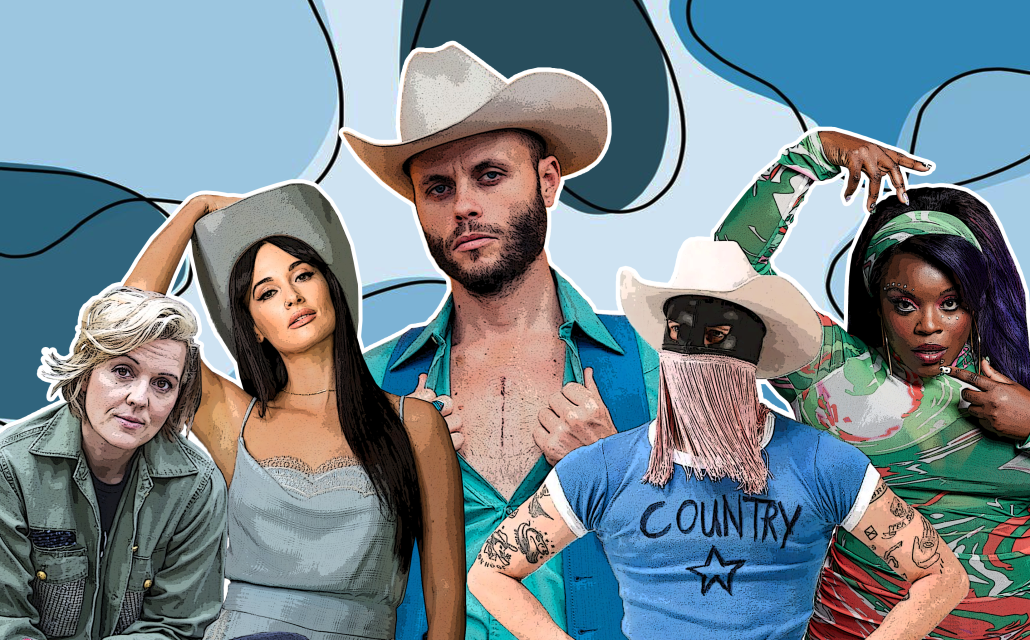I Reckon: Country music is for everyone, not just Southerners
Country music is arguably the most hated music genre out there. The most faithful listeners even have a hard time listening to the pop-like tunes coming out of Nashville nowadays.
Country music was created by Black people and European immigrants in the 17th century, and it slowly branched out into different subgenres. Country songs used to stand up against the status quo, like Tennessee Ernie Ford’s “Sixteen Tons,” a moody ballad about greedy coal barons, and Loretta Lynn’s “The Pill,” a song promoting the use of birth control pills. However, after the events of Sept. 11, country music got progressively whiter and more patriotic, though that “patriotism” often borders on outright nationalism.
The good news is that a handful of country and Americana music artists are bringing country music back to its diverse, working-class roots. Here are just a few:
Charley Crockett
Charley Crockett, who is of Black, Cajun, Creole and Jewish heritage, spent his formative years in a Texas trailer park before becoming a globetrotter, playing in every possible venue from the streets of New Orleans to the New York subways. His complex identity translates into the different themes his music covers. For someone who released 10 albums in just a mere six years, there’s no telling what the best-dressed man in country music is going to sing next.
In his 2020 album “Welcome to Hard Times,” Crockett hits on everything, from chain gangs in his soulful rendition of “Blackjack County Chains,” to our economically and politically rigged world in the album’s titular track.
Tyler Childers
Tyler Childers is about as authentically Appalachian as you can get, and this son of Kentucky is perhaps one of our time’s greatest storytellers. You can just hear the songs’ emotion and authenticity that retell his first-hand experience as an Appalachian.
Most recently, Childers made it clear that he isn’t afraid to use his music to push back against so-called Southern values. In his album “Long Violent History,” he initially graced listeners with fiddle tunes before catching them off guard with the album’s last song — its title track.
In “Long Violent History,” Childers asks white Southerners — and others who have shown disdain for the Black Lives Matter movement — how they would feel if “the smallest interaction with a public servant” could lead to assault or death. Furthermore, Childers gives listeners a history lesson, vividly describing the Battle of Blair Mountain, where coal miners took up arms against strikebreakers, lawmen and eventually the United States Army in the largest labor uprising since the Civil War.
Sturgill Simpson
In his Saturday Night Live debut, Sturgill Simpson was first introduced to the average American audience when his energetic “Call to Arms” almost threatened to blow down the studio. Perhaps one of his most politically and socially critical songs to date, “Call to Arms” is a rockabilly critique of the military-industrial complex — Simpson posits it as more courageous to resist military recruitment propaganda than to be a military puppet.
Orville Peck
The masked baritone from Canada is perhaps the best retort to a socially conservative genre. If his country-bumpkin version of Lady Gaga’s “Born This Way” doesn’t embody outlaw country, I don’t know what does.
He performs western ballads and moody country so well, it is hard to imagine country music without his hits such as “Dead of Night,” “Queen of the Rodeo” and “No Glory in the West.” Orville also isn’t the least bit afraid to bring different cultural spheres into his work: He covered the country classic “Jackson” with drag star Trixie Mattel on her EP, “Full Coverage, Vol. 1.”
Brandi Carlile
Brandi Carlile’s music expands many genres, but her country roots are undeniable. She was influenced by country legends such as Patsy Cline and Tanya Tucker and managed to mold the genre to accurately represent and resonate with a larger audience.
Her song, “The Joke,” is a strong empowerment anthem in and of itself, but it also reflects on everything from sexual orientation to the refugee experience. “Party of One’’ and “Crowded Table” from her all-women country supergroup, The Highwomen, are also worth a listen.
Yola
Yolanda Quartey, also known as “Yola,” actually grew up in Bristol, England. Still, you wouldn’t be able to tell just through her music. Just close your eyes and listen to “Walk Through Fire” or more soulful songs such as “Starlight,” “Diamond Studded Shoes” and “Hold On” and you’ll think that you’re listening to the second coming of Aretha Franklin and Janis Joplin — two artists who either left a footprint on country music or found inspiration from it.
Yola reminds us that country isn’t a genre restricted to a region, country or nationality. It is a genre founded by folks from all walks of life singing about their lives.
Quynh Anh Nguyen is a sophomore writing about current political events as an Asian-American Southerner and California transplant. Her column, “I Reckon,” runs every other Tuesday.


